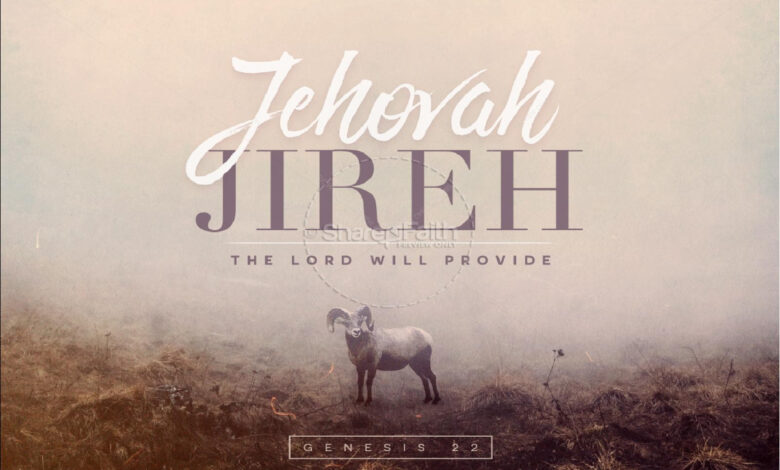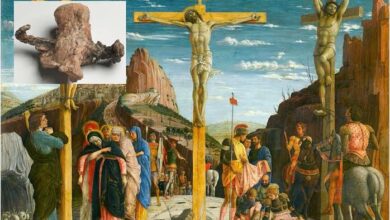Meaning of Jehovah Jireh and everything you need to know.
What does it mean that God is Jehovah-Jireh?

Who is Jehovah?
Jehovah is God’s name as the covenant-keeping LORD, whose nature is endlessly unchanging and whose word never fails. God came to Moses in this name in the story of the “flaming bush,” as recorded in Exodus 6:2-3:
And God spoke to Moses, saying, ‘I am the LORD [Jehovah].’ I appeared to Abraham, Isaac, and Jacob as God Almighty [El Shaddai], but I was not known to them by My name LORD [Jehovah].’
In this story, God emphasizes that He was previously shown to Abraham as El Shaddai, which means the ‘All-Sufficient God,’ but was now being revealed as Jehovah, which means the ‘unchanging, ever-faithful, covenant-keeping LORD.’
What does the name ‘Jehovah-Jireh’ mean?
One of the many distinct names for God mentioned in the Old Testament is “Jehovah-Jireh.” The interpretation of YHWH-Yireh is “Jehovah-Jireh,” which means “The LORD Will Provide” (Genesis 22:14). It is the name that Abraham remembered when God provided the sheep to be slaughtered in place of Isaac.
Abraham memorialising God as Jehovah-Jireh
God gave Abraham an unusual instruction, instructing him to present his “son of promise,” Isaac, as a sacrificial offering. The next morning, Abraham packs wood and a knife and travels with Isaac to Moriah, the location God had described.
As they approach the place, Isaac inquires about the anticipated offering: “Where is the lamb?” Abraham responds with remarkable trust and foresight, “God himself will supply the lamb for the burned offering, my son” (Genesis 22:1-8).
When Abraham arrives at the location provided by God, he proves his faith and obedience by erecting an altar, tying Isaac, and laying him on the wood. Before Abraham can finish his offering, the Angel of the Lord appears from heaven and saves Isaac’s life.
Then “Abraham glanced up and saw a ram entangled by its horns in a thicket.” He walked over and received the ram as a burned offering instead of his son” (Genesis 22:13). Because of God’s generous gift of a substitute for Isaac, Abraham named the location “Jehovah-Jireh.” God immediately reconfirms His covenant with Abraham.
Why is the name ‘Jehovah-Jireh’ significant to Christians today?
A son was born.
Just as Abraham’s beloved son, Isaac, was to be sacrificed, God gave His only Son to die on a crucifixion for us.
For God loves the world so much that He gave His only born Son, that whoever believes in Him should not perish but have eternal life. (John 3:16)
A substitute was discovered.
God had no wish for Isaac to be sacrificed on an altar; rather. He was testing Abraham’s faith while revealing His greater purpose. God intervened to save Abraham’s son Isaac as the knife was raised.
However, Jesus served as a substitution for the guilty. As a ram was discovered to take the stroke of Abraham’s knife and be destroyed in the fire, so God’s Son, Jesus Christ, freely took the stroke of justice for sin and endured the heat of God’s judgment, so that we (like Isaac) would be spared.
There was a sacrifice made.
Abraham’s most prized property was his son, whom he adored. It was, nevertheless, immeasurably more precious for God to give HIS Son. He adored and cherished His Son. But He was ready to allow Him to become our sin-bearer in order to restore our connection with Him.
Finally, since God honours His word to Abraham over 1500 years after the events on Mount Moriah, we must remember that He keeps His word to us today.
Conclusion
God has prepared for us eternal salvation by delivering the greatest gift He could give—His Son—to die in our place for our sins. As a result, Paul adds, having offered the greatest conceivable gift, God would undoubtedly generously provide for all of our wants—even our tiny, daily needs. He understands what we require and will supply it. Jehovah Jireh is his name.
Get more prayer points, daily inspirational posts, and a pastor’s biography here at Dailygam.com













